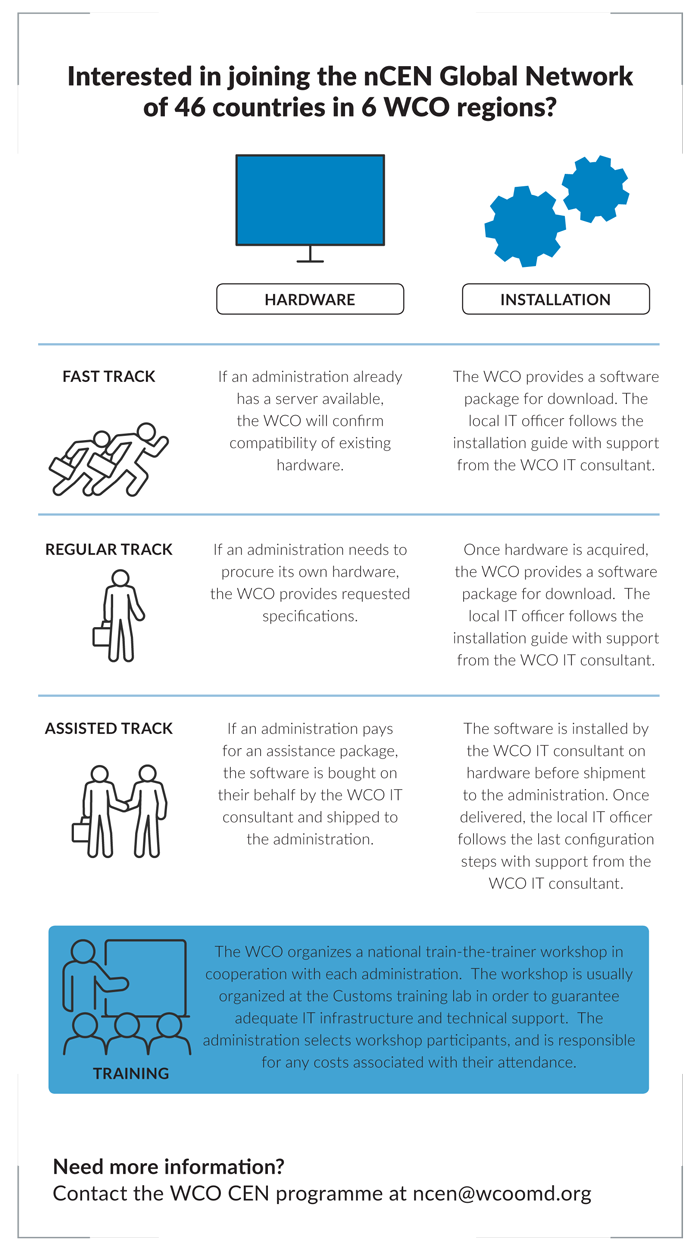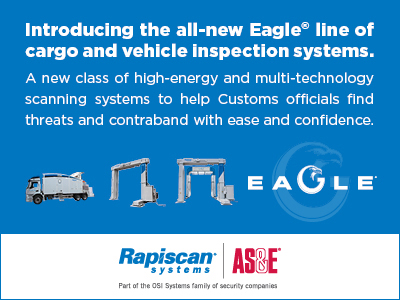Customs implements the WCO nCEN in Palestine
27 February 2020
By Palestine CustomsPalestine Customs aims at creating an environment supportive of the national economy by preserving the security and safety of the community and combating smuggling, tax evasion, and commercial fraud in all its forms. All laudable activities for a territory that faces enormous daily challenges on many fronts.
Since it became a Member of the WCO in 2015, the administration has been keen to benefit from the WCO Secretariat’s expertise, especially in the field of enforcement. One of the success stories of this partnership is the implementation of the WCO National Customs Enforcement Network (nCEN) application, enabling the collection, storage, analysis, and dissemination of law enforcement information efficiently, in order to establish robust intelligence capabilities within Customs.
The nCEN was installed at the beginning of 2018. In February of the same year, two Palestinian Customs officers working respectively in IT and in risk management participated in a workshop organized by the WCO, giving them the opportunity to learn:
- how to administer the tool;
- how to manage the user database (creation of new users, deactivation of users, password resets, etc.);
- how to manage the three databases that form part of the system (the principal database of national seizures and offences, and the two supplementary databases that comprise information on suspect persons, means of conveyance, and business entities of interest to Customs).
At the beginning of 2019, officers working at the Alkaramah Bridge border crossing between Jordan and the Palestinian territories, the West Bank in particular, started feeding the database with cases of Customs regulation violations. All Customs units in charge of enforcement may access the nCEN, which currently counts approximately 15 active users having different authorizations according to their location and responsibility.
As the Palestinian territories are divided into two, the West Bank and the Gaza Strip, the nCEN enables officers situated not only in different departments, but also in each of the physically separated parts of the territories to share information.
The Palestinian territories comprise two sections: the West Bank and the Gaza Strip, which are physically separated from one another by the State of Israel. Jordan borders the West Bank on the east, while Egypt lies to the west of the Gaza Strip.
The international borders of the Palestinian territories are managed according to the provisions of the Paris Economic Protocol signed in 1994, in terms of which Israeli Customs performs clearance procedures, security checks, and tax collections at all entry points.
Data received through the Israeli electronic clearance system is transferred automatically to the equivalent system in the Palestinian territories to which all its existing 13 Customs offices are connected.
Palestine Customs officers check the data received from Israel and undertake post clearance audits when necessary, primarily to combat tax evasion through the undervaluation of imported goods and the infringement of rules of origin, as well as the incorrect declaration of goods, quantities, and tariff codes.
Customs analysts use the nCEN data to identify risk criteria and set up the data analytics functionality such as automated searches on new data, and matching rules that allow users to identify connections between data elements in the application.
The fact that the latest version of CENcomm, the WCO’s secure communication tool, enables seizure data collected during Customs operations to be transferred to the nCEN at the push of a button is another plus. During the latest regional enforcement operation, which focused on tobacco smuggling, this functionality enabled Palestine Customs to save time and resources.
With the support of the WCO Secretariat and the technical team in charge of maintaining the application, implementation of the latest version of the nCEN has begun, and will be deployed in all Customs and tax revenue offices situated at the border and inland. Each of them will be requested to feed information into the system. Of particular importance is the fact that the application’s interface is available in Arabic, among other languages.
The Palestinian nCEN team is now ready to fully participate in the future development of the tool by providing user feedback and ideas to improve it, as well as by sharing their experiences and best practices through the nCEN Global Network. Its operation can also be viewed by other interested Customs administrations of the region that wish to see how it works.
More information
Mohammad jarrad: jmohammad@customs.ps
Nabhan Albaba: nabhan_customs@pmof.ps
Interested in joining the nCEN Global Network of 46 countries in 6 WCO regions?
This flyer explains the various deployment methods.


